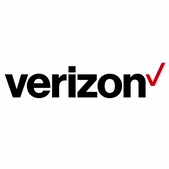- Aug 25, 2001
- 56,326
- 10,034
- 126
Interesting technology. I've got some NAS units, "TS-431" and "TS-451". AFAIK, they register in local (router) DNS when booted, with their names. Which, to my knowledge, should be accessable, via "http://ts-451./" , etc.
Well, It seems that somehow, my router has been compromised (likely a targeted attack), and when I went to go to those URLs, by name, rather than local IP directly, that they re-directed out to a "Fake NAS" site, that re-directed back into my local NAS, but stole my NAS admin passwords and whatnot. Looks like my NAS, but some settings didn't stick properly, and I didn't know why, and responsiveness of the UI was laggy.
The fact that either: 1) they were able to auto-generate, on the fly, additions to the internet's TLD category, using my custom NAS names, or 2) inject those named into my local Router's DNS, possibly using ARP or DNS poisoning, such that logins., etc, that would normally happen completely locally to my LAN, went out over the internet to some server.
I have proof.
Well, It seems that somehow, my router has been compromised (likely a targeted attack), and when I went to go to those URLs, by name, rather than local IP directly, that they re-directed out to a "Fake NAS" site, that re-directed back into my local NAS, but stole my NAS admin passwords and whatnot. Looks like my NAS, but some settings didn't stick properly, and I didn't know why, and responsiveness of the UI was laggy.
The fact that either: 1) they were able to auto-generate, on the fly, additions to the internet's TLD category, using my custom NAS names, or 2) inject those named into my local Router's DNS, possibly using ARP or DNS poisoning, such that logins., etc, that would normally happen completely locally to my LAN, went out over the internet to some server.
I have proof.










